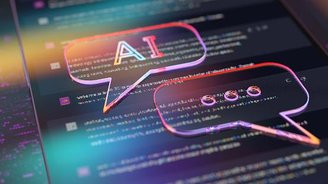Everyone on the internet today has to worry about their future artificial intelligence. As a result, this technology will become increasingly widespread in every part of our lives and may affect our daily lives in many aspects.
According to the research conducted by Blaze Information Security, Brazil’s artificial intelligence spending increased by 120% compared to the previous year. And this trend will only increase: in commercial and domestic tasks, in data analysis, in algorithms specialized to our behavior, in applications that simulate human voices and images, etc. We will increasingly live with automation.
All this raises new demands and questions; for example cyber security. With this in mind, it is necessary to be aware of the challenges and regulations required to ensure that new technology is always used ethically. After all, AI can also be used to implement new types of fraud that, if left unchecked, further threaten the lives of citizens.
Worldwide AI legislation
Today, many countries are grappling with the issue of regulating artificial intelligence. Recently, representatives from 27 countries (including those from the European Union, Canada, and Brazil, among others) met to develop guidelines for the safe use of artificial intelligence programs.
In Europe, the Parliament presented in June 2023: Artificial Intelligence Law, Legislation containing rules that must be accepted by signatory countries. With the final approval of the project, which took place on March 13, 2024, the first artificial intelligence legislation in the world was created.
The Artificial Intelligence Act defines AI as “a machine-based system designed to operate with varying levels of autonomy that can exhibit the ability to adapt after deployment.” “For explicit or implicit purposes and based on the input data it receives, it draws guiding conclusions such as predictions, content, recommendations, or decisions that may affect physical or virtual environments”.
Factors determined by the Artificial Intelligence Law include that artificial intelligence systems must be safe, transparent, traceable, non-discriminatory and respect people’s privacy. However, experts argue that it is not yet clear how these goals should be achieved in this law. Artificial intelligence systems also have the privilege of always being under human supervision.
This encouraged other nations, including Brazil, to create their own rules. There are at least four Bills (PLs) in the country that attempt to create this regulation. The idea is that regulation will help reduce risks from misuse of AI, such as invasion of citizens’ privacy, data theft, and disrespect for the rights of minority groups.
What are the main legal challenges of regulating AI?
The projects proposed by Brazilian politicians so far aim to create common legislation that suits the needs of the parties involved. However, some decisions need to be made regarding what the “level” of this regulation will be.
Experts say “strong” regulations could make it harder for small companies to thrive in this scenario as they may not be able to meet all the requirements of the law. Therefore, there is an opinion that the approved legislation still needs to be brought into line with the Brazilian reality.
Projects in transition include PL 21/2020, also known as the legal framework regulating the use of artificial intelligence. It lists the principles that should guide the implementation of artificial intelligence in the country, including issues such as respect for human dignity, transparency of algorithms and protection of personal data.

PL 2338/2023 aims to establish control tools as well as the rights of citizens affected by artificial intelligence. The project focuses on five pillars: principles; the rights of those affected; risk classification; governance obligations and requirements; control and responsibility.
But one challenge that still complicates regulation is lawmakers’ lack of technical knowledge of the technology. There are those who say that this could pose a threat to the evolution of artificial intelligence in the country, as the borders could be artificially imposed.
Therefore, it can be said that Brazil currently lives in a certain impasse: Strong regulations may perhaps hinder innovative proposals for the use of artificial intelligence. On the other hand, the lack of standards can lead to problematic use of technology.
What might the future regulation of AI in Brazil look like?
There is still no approved regulation for artificial intelligence in Brazil, but the proposals are still surrounded by clouds and differing opinions. It is important to note that the projects were produced before the release of ChatGPT and therefore do not yet deal with generative AI.
Therefore, useful legislation would be legislation that provides rules for the use of this technology and determines how relevant issues such as the following are relevant. deepfake audio and video – tend to cause many problems at critical moments of political life, such as elections.
Another possibility emphasized by lawyers is that the legislation existing in the Civil Code will be applied in these cases. This is, for example, the opinion of lawyer Antonio Carlos Morato of the USP School of Law. The professor researches copyright and artificial intelligence and said he sees no need for special laws for such uses.

“Undoubtedly, it is possible to prevent unauthorized uses with the regulations in the Federal Constitution, the Civil Code and the Copyright Law. For example, draft law No. 3614/23 only aims to detail what already exists in the existing law text. Civil Code,” he said in an interview with Fapesp.
The truth is that, regardless of the level of regulation, it is increasingly necessary for Brazil to think about rules that meet its specific needs in order to act preemptively against problems that AI may cause in the future.
Do you like content about the future of technology? Therefore, continue to follow the discussions on the subject here TecMundo.
Source: Tec Mundo
I am a passionate and hardworking journalist with an eye for detail. I specialize in the field of news reporting, and have been writing for Gadget Onus, a renowned online news site, since 2019. As the author of their Hot News section, I’m proud to be at the forefront of today’s headlines and current affairs.










